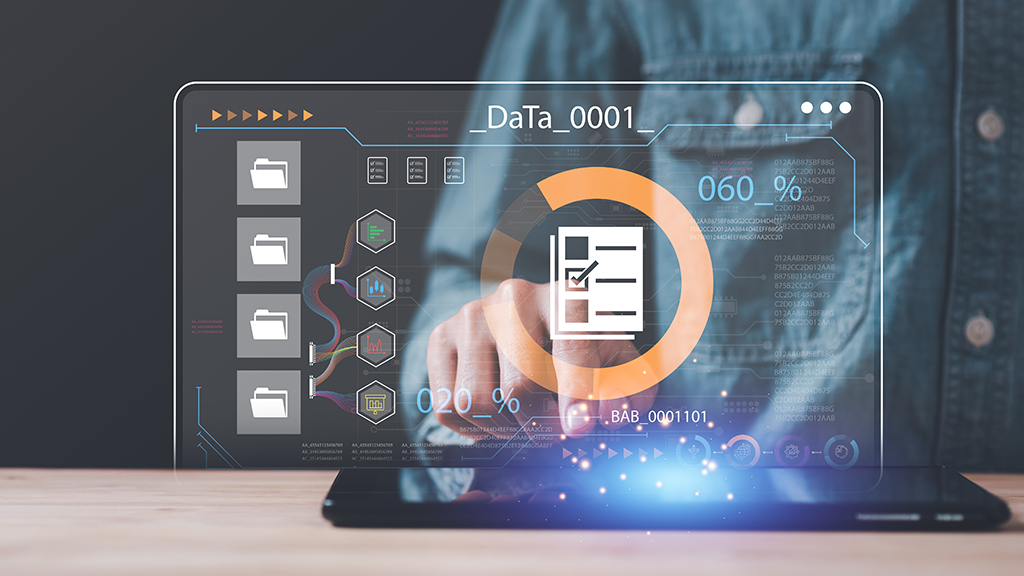
Global Content Lead - Tech & Consulting
Subscribe to the newsletter
Accounting systems and Enterprise Resource Planning (ERP) solutions both serve essential roles in managing the financial aspects of a business.
In 2021, the worldwide market size of ERP software like Microsoft Dynamics 365 amounted to $50.57 billion, and it is projected to expand at a compound annual growth rate of 10.7% from 2022 to 2030, ultimately reaching $123.41 billion.
On the other hand, in 2020, the accounting software market achieved a valuation of $11.9 billion on a global scale. It is anticipated to grow substantially, with a projected value of $70.2 billion by 2030. This growth is expected to occur at a remarkable compound annual growth rate (CAGR) of 19.6% from 2021 to 2030.
Understanding the difference between Enterprise Resource Planning (ERP) and accounting software is crucial for businesses as it helps them select the right tool to meet their specific operational needs. Accounting software is designed for financial tasks and is suitable for small to medium-sized businesses with less complex accounting needs.
An ERP system covers a wide range of functions, including financial management, supply chain management, HR, and customer relations. It’s ideal for bigger companies and can help with expansion and adapting to changing business needs.
Choosing between ERP and accounting software requires careful consideration of impact on efficiency, data integration, scalability, and cost. Understand key differences to align with business needs and promote sustainable growth.
Although both have their unique capabilities and applications, ERP and accounting software possess distinct differences. In this blog, we will discuss the five key differences between ERP and accounting software.
What is an ERP?
ERP stands for Enterprise Resource Planning. It refers to a software system that integrates and manages various core business processes and functions within an organization. An ERP system helps streamline and automate processes related to finance, human resources, supply chain management, manufacturing, customer relationship management (CRM), and more.
It is a centralized database where different departments can access and share real-time information, enhancing collaboration and efficiency across the organization. ERP systems provide:
- A holistic view of an organization’s operations
- Better decision-making
- Resource planning
- Business management
What is accounting software?
Accounting software is a type of computer program specifically designed to facilitate and automate accounting and financial tasks within a business or organization.
It provides a digital platform for recording, organizing, and processing financial transactions, managing accounts payable and receivable, tracking expenses and revenues, generating financial reports, and conducting various other accounting activities.
Accounting software typically includes features such as general ledger, invoicing, payroll processing, financial reporting, and tax management, and sometimes integrates with other systems like banking and inventory management. It offers businesses a more efficient and accurate way to manage their financial data, improve bookkeeping practices, and ensure compliance with accounting standards and regulations.
What is the difference between ERP and accounting software?
To effectively illustrate the distinctions between accounting software and ERP systems, it is essential to examine the contrasting functionalities and the extent of their impact. The following are the 5 key differences between ERP and accounting software.
- Scope of functionality: A major difference between ERP and accounting software is the scope of functionality. Accounting software is primarily focused on financial management tasks, such as creating invoices, managing accounts payable and receivable, handling payroll, and generating financial reports. In contrast, ERP systems offer a more comprehensive suite of integrated modules that go beyond accounting. These modules can cover areas such as human resources, supply chain management, customer relationship management, inventory management, manufacturing, and project management. As a result, ERP systems provide a more complete view of the entire organization and enable better coordination and communication among different departments.
- Integration and data sharing: ERP systems excel in integrating various business processes and departments, allowing for seamless data sharing and real-time information flow. The modules within an ERP system share a centralized database, eliminating data silos and ensuring consistency across different functions. This integration enables efficient communication and coordination among departments. Accounting software, on the other hand, often functions as a standalone system with limited integration capabilities beyond financial data. It primarily focuses on managing accounting-specific information and transactions.
- Enterprise-wide resource planning: ERP systems are specifically designed to provide enterprise-wide resource planning capabilities. They allow organizations to effectively manage resources such as materials, manpower, and financial assets by integrating and optimizing various processes. With ERP, businesses can streamline operations, improve efficiency, and make informed decisions based on real-time data across multiple departments. Accounting software, however, primarily focuses on financial resource management, providing tools for accurate bookkeeping, financial analysis, and reporting.
- Scalability: Another key difference between accounting software and ERP is in terms of scalability. ERP systems are built to handle the complex needs of larger organizations and are highly scalable to accommodate growth. They offer flexibility in adapting to changing business requirements and can be customized to meet specific industry or organizational needs. ERP systems can seamlessly incorporate additional modules to support new functionalities as companies expand or diversify their operations. In contrast, accounting software, while flexible to a certain extent, may have limitations in terms of scalability and accommodating complex business processes. It is typically more suitable for small to medium-sized businesses with simpler accounting needs.
- Cost and implementation: Implementing an ERP system involves a higher initial investment compared to accounting software. The extensive functionalities, integration requirements, and potential customization in ERP implementation contribute to higher costs. ERP implementations also tend to require significant time and resources due to the complexity of integrating multiple departments and aligning business processes. Accounting software, on the other hand, is generally more cost-effective and easier to implement. It offers a quicker setup and requires fewer resources, making it a practical choice for small to medium-sized businesses or those with specific accounting requirements. These differences highlight how ERP systems and accounting software cater to different organizational needs.
To further explore the difference between ERP and accounting software, we are going to explore the pros and cons of each technology.
Pros and cons of an accounting software
| Pros | Cons |
|---|---|
| Efficiency: Automates manual tasks and saves time | Learning Curve: Requires time to familiarize with the software |
| Accuracy: Minimizes errors and ensures compliance | Initial Setup and Cost: May require effort and can be expensive |
| Financial Insights: Provides real-time access to data for decision-making | Limited Functionality: May lack extensive features or integration capabilities |
| Reporting and Analysis: Offers robust reporting capabilities | Dependency on Technology: Relies on technology and may experience technical issues |
| Payroll management: Managing employees easier, especially when dealing with finances and payroll | Security Concerns: Requires proper data protection measures |
| Productivity: Enhances business productivity by automating tasks, reducing waste, and freeing up resources across all operations | Customer Service: Can face delays due to customer support |
Overall, the pros of accounting software, including increased efficiency, accuracy, financial insights, and reporting capabilities, outweigh the cons.
However, it’s crucial to select the right software that aligns with the business’s needs and consider cost, scalability, and security factors when implementing accounting software.
Pros and cons of an ERP
| Pros | Cons |
|---|---|
| Integration and Efficiency: Enables smooth data flow and collaboration | Implementation Complexity: Requires significant planning and coordination |
| Comprehensive Functionality: Covers various departments and functions | Cost: Involves substantial upfront investment |
| Real-time Data and Reporting: Provides up-to-date insights for decision-making | Training and User Adoption: Requires training and adjustment to new processes |
| Scalability and Flexibility: Adapts to business growth and changing needs | Customization and Flexibility Trade-offs: Balancing customization with system stability |
| Process Standardization and Compliance: Enforces consistent workflows and regulatory compliance | Dependency on Vendor Support: Reliance on vendor for support and updates |
ERP vs Accounting software: Which is better for your business?
The choice between ERP and accounting software depends on a business’s specific needs and circumstances. Both ERP systems and accounting software have their advantages and limitations.
ERP systems are most appropriate for bigger enterprises that have intricate operations spanning various departments. These systems merge several functions, such as finance, supply chain, human resources, and customer relationship management, to offer a complete overview of the business. This enhances the efficiency of decision-making, particularly for firms that operate in multiple locations or countries.
For small to medium-sized businesses with straightforward accounting requirements, accounting software is typically a more suitable option. This type of software prioritizes financial tasks such as managing accounts payable and receivable, generating invoices, processing payroll, and generating financial reports. Accounting software is generally easier to implement, requires less training, and is more cost-effective compared to ERP systems.
When deciding whether to use ERP or accounting software, it’s important to consider the scale and complexity of your business operations, as well as your growth plans and the resources you’re willing to commit to software implementation and upkeep. Ultimately, the choice should be based on these factors.
Conclusion
In conclusion, while accounting software and ERP systems play important roles in managing the financial aspects of a business, they differ significantly in terms of functionality, integration, scalability, and cost.
ERP systems offer comprehensive solutions encompassing various departments and functions, promoting efficiency, collaboration, and better decision-making. Accounting software, on the other hand, is more focused on accounting-specific tasks and is better suited for businesses with simpler needs.
The choice between ERP and accounting software ultimately depends on the specific requirements and circumstances of the company, and careful consideration should be given to factors such as functionality, scalability, implementation complexity, and cost.
So, reach out to us at marketing@confiz.com and let our experts help you choose the right option for you to meet your business needs.



